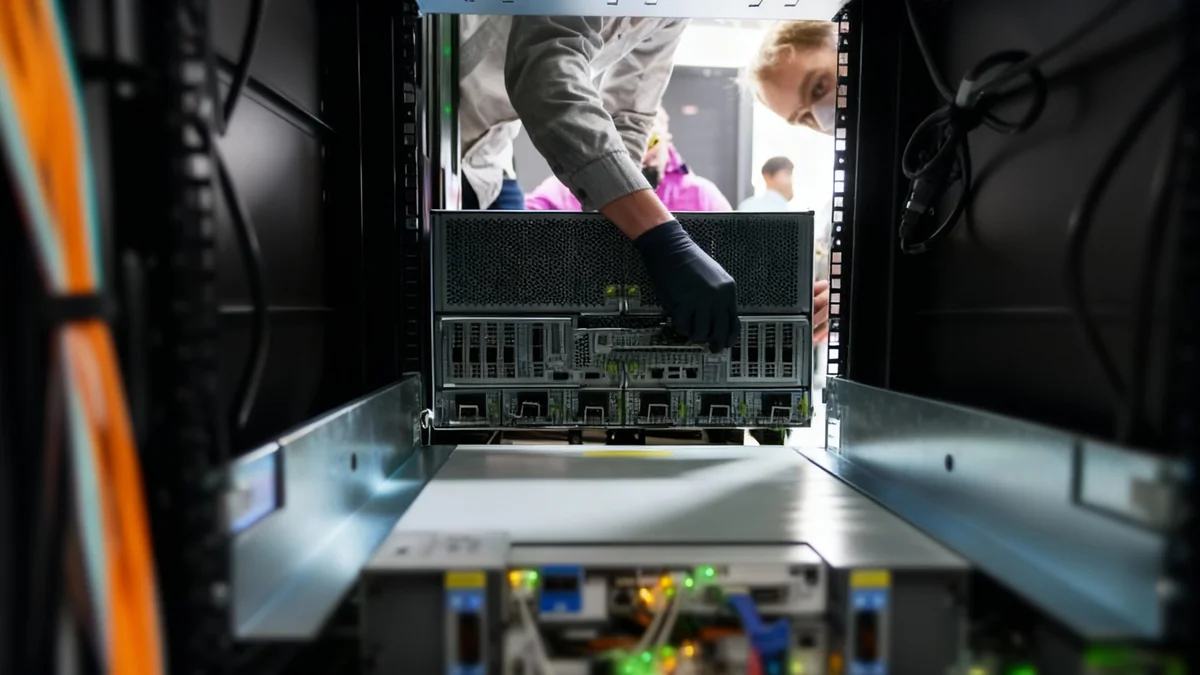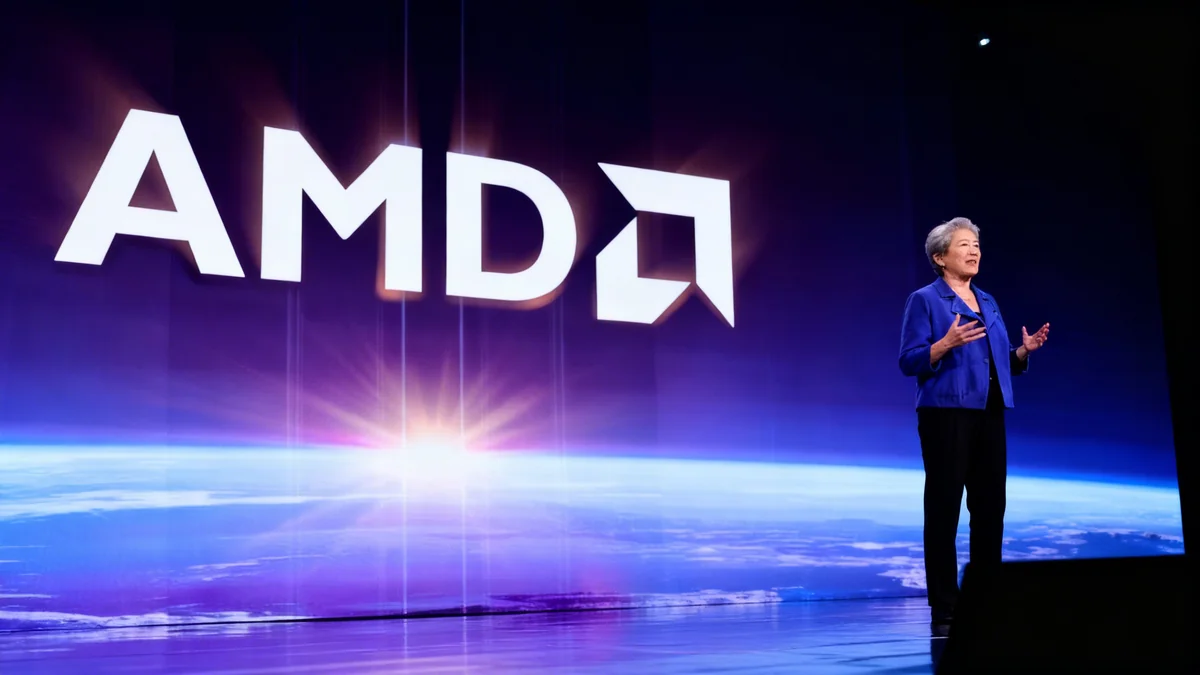Nvidia shares climbed to an all-time high on Tuesday, closing with a market valuation of $4.9 trillion. This surge occurred as the company's GTC event highlighted significant advancements and future revenue projections in artificial intelligence technology.
Key Takeaways
- Nvidia stock increased 5% to a record $201.03, reaching a $4.9 trillion market value.
- CEO Jensen Huang announced over $500 billion in projected revenue from current and future AI chips through 2026.
- New partnerships include a quantum computing interconnect and a 100,000 robo-taxi fleet deal with Uber.
Nvidia's GTC Event Fuels Market Confidence
Nvidia’s stock closed at a new record high of $201.03 on Tuesday. This rise of 5% reflects strong investor confidence during the company’s GTC event, held in the nation’s capital.
The market capitalization for Nvidia reached $4.9 trillion, nearing the $5 trillion mark. Other chip manufacturers saw varied performance, with Advanced Micro Devices (AMD) down 0.6% and Broadcom up 3.0%.
Nvidia's Market Milestone
Nvidia's market value reached $4.9 trillion, just shy of the $5 trillion threshold. This positions the company as a dominant force in the technology sector.
CEO Huang Unveils Major AI Initiatives
During his keynote address at the GTC event, CEO Jensen Huang made several announcements. These included new partnerships and technological innovations.
A significant highlight was the introduction of a new interconnect technology for quantum computing. This development could pave the way for more integrated and powerful computing systems.
Huang also revealed an agreement with Uber to develop a 100,000 robo-taxi fleet. This partnership underscores Nvidia’s expansion into autonomous vehicle technology and its practical applications.
"Nvidia now has visibility on more than $500 billion of cumulative revenue for its current Blackwell AI chips and future Rubin chips through 2026," Huang stated during his address.
This projection provides a clear outlook on the company's financial trajectory in the rapidly expanding AI market.
Future Revenue Projections and Chip Development
The company's focus remains on its AI chip development. The Blackwell AI chips are currently in production, and the future Rubin chips are already generating significant revenue visibility.
This long-term revenue visibility, extending through 2026, signals sustained growth. The figure of over $500 billion in cumulative revenue highlights the immense demand for Nvidia's specialized AI hardware.
Global AI Chip Landscape
The market for AI chips is highly competitive. Nvidia's continued innovation and strategic partnerships help maintain its leading position despite new entrants.
Competitive Landscape in AI Chips
Concerns about new competitors entering the AI chip market appear to have had minimal impact on Nvidia's stock performance. Qualcomm, for instance, is set to ship its AI200 chips next year, followed by the AI250 in 2027.
Humain, an AI company established by Saudi Arabia's Public Investment Fund, will be the first customer for Qualcomm's products. However, industry analysts question whether Qualcomm's offerings will gain traction with major cloud-computing companies, which are key drivers for Nvidia's business.
Melius Research analyst Ben Reitzes noted, "The specifications for Qualcomm’s products seem to be much lower than those of Nvidia and even AMD." He added that Qualcomm's success hinges on attracting non-sovereign customers for broader adoption.
Broadcom also indicated last month that clients might increase their use of its hardware, potentially reducing reliance on Nvidia's graphics-processing units. Despite these competitive statements, Wall Street analysts generally support Nvidia's leadership position.
Nvidia maintains a substantial advantage with its CUDA software. This platform is widely adopted by developers, creating a strong ecosystem that is difficult for competitors to replicate.
- Nvidia's Market Share: The company holds approximately 90% of the market share for AI GPUs.
- Software Advantage: The CUDA software platform provides a critical competitive edge.
- Developer Ecosystem: A large community of developers familiar with CUDA reinforces Nvidia's market dominance.
Strategic Partnerships and Global Dynamics
The GTC event coincides with President Donald Trump's visit to Asia, where potential sales of U.S.-made AI chips to China are expected to be discussed with Chinese leader Xi Jinping. Geopolitical factors continue to play a role in the global semiconductor market.
Nvidia's ability to navigate these dynamics while continuing to innovate is crucial. The company's recent announcements demonstrate a proactive approach to securing future growth and market leadership in various AI applications.
The record stock performance suggests that investors remain confident in Nvidia's long-term strategy and its capacity to stay ahead in the rapidly evolving artificial intelligence sector.





